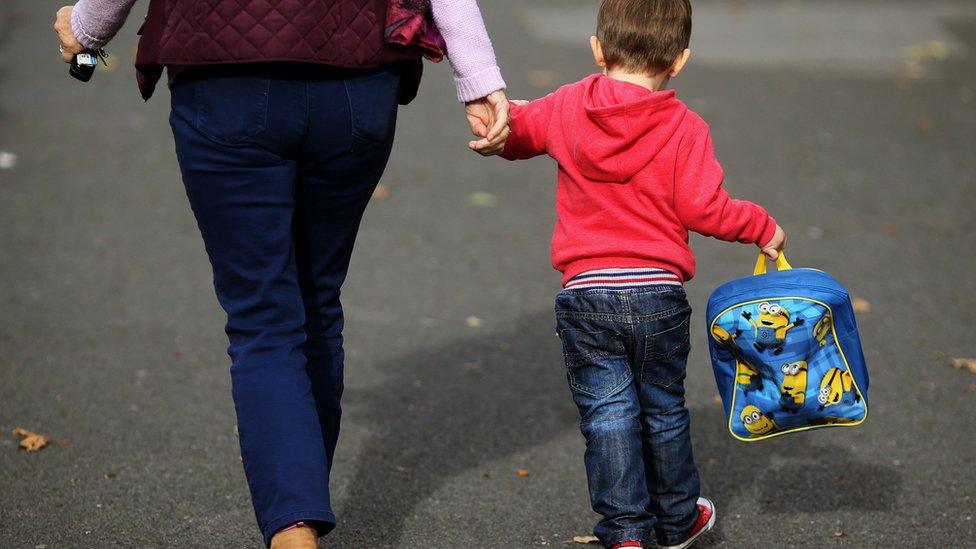Will England's success boost the UK economy?
- Published
- comments
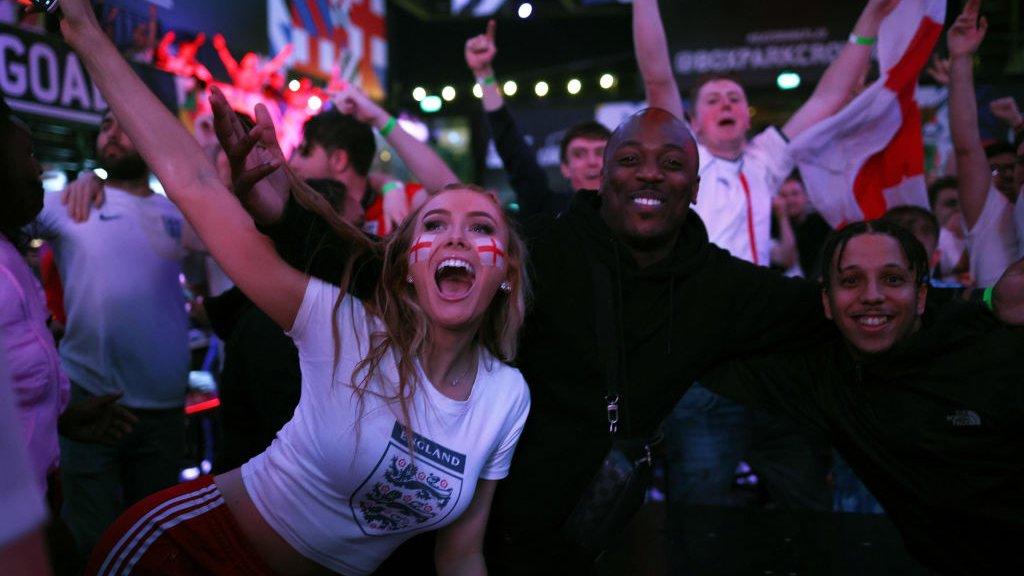
Former England striker Alan Shearer has told the BBC that England's success in the Euro 2020 tournament so far has given the country "joy", "relief" and "hope" after a tough 18 months.
But could this feelgood factor translate into an economic boost for the country as well?
After the team reached its first major men's football final in 55 years on Wednesday, Chancellor Rishi Sunak said he expected to see a "bounce" in consumer confidence because of the tournament.
Some businesses, however, say social distancing rules are stopping them from fully reaping the benefits.
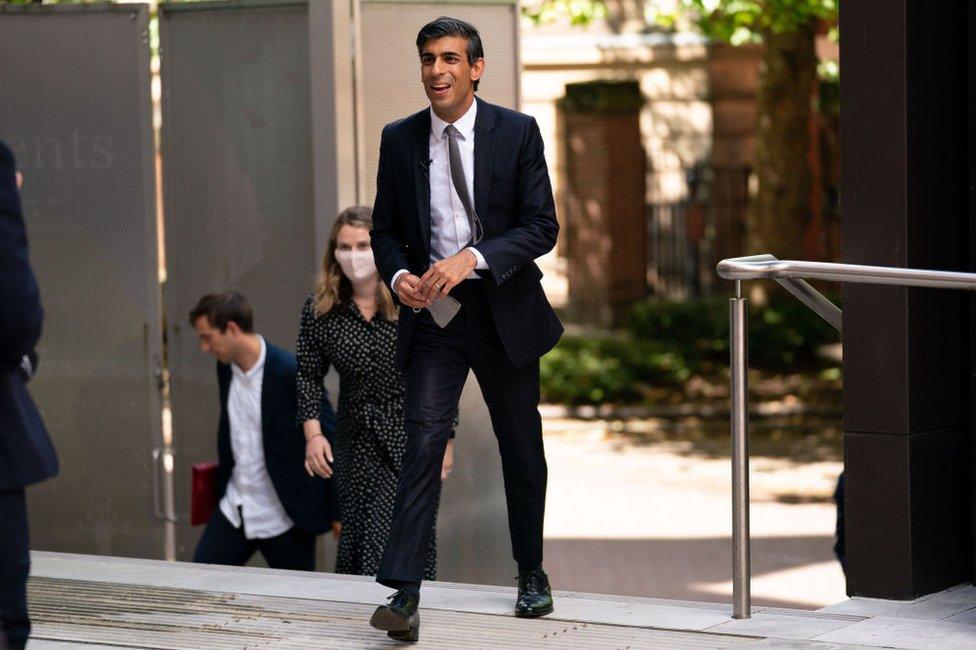
The chancellor expects a Euros bounce in consumer spending
Simon French, chief economist at brokers Panmure Gordon, told the BBC that he agreed England's success could boost economic growth, alongside other factors.
Part of this would be the impact of spending on hospitality as people watched games, something he estimates could contribute a relatively small £150m to UK GDP.
But, he added: "If a victory on one day coalesces with a broader feelgood factor, like we saw during during Euro 96 or the 2012 Olympics, it could boost consumer sentiment.
"The difference this time is that UK households have a lot of pent-up savings due to the pandemic - we estimate about £20bn - and the speed with which they are spent is closely linked to consumer sentiment.
"Winning the final, along with lots of other things, like reopening, the easing of restrictions, could help unlock many billions of pounds worth of additional spending."
Independent economist Julian Jessop is more cautious, however.
He tweeted, external: "I'd love to say winning #euro2020 will boost the UK economy (or at least the English bits), but it wouldn't change any of the fundamentals.
"And clearly [it would be] trumped by everything else going on, especially the lifting of Covid restrictions."
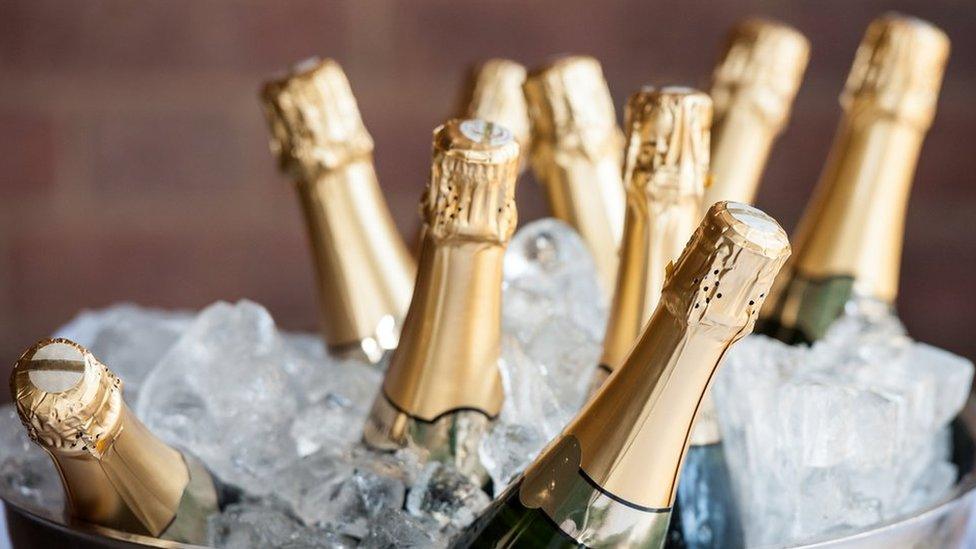
Champagne sales could soar if England wins, says the Co-op
Retail analyst Catherine Shuttleworth thinks it will be a "massive" weekend for the supermarkets, with the final due to be played on Sunday evening. She also expects a mini spending boom on items such as cars and homeware if England win, as well as a boost to productivity.
"We have gone through a period of misery which makes consumer sentiment quite low so people don't splash out," she said.
"But the vaccine programme is working which is massive source of hope. People in employment are feeling OK thanks to furlough. And now we have this massive confidence boost from the football which makes us all feel more positive and pull together."
The boss of beer, wines and spirits at Co-op, Simon Cairns, says the supermarket chain expects a "bumper weekend" ahead of the final on Sunday.
"We are expecting to sell and additional one million drinks on Sunday alone compared to our normal trading, which is twice what we could normally expect to sell," he told the BBC.
"If yesterday is anything go by those sales will be dominated by beer and cider. And in a nod to our Italian opponents we are expecting to see some bumper sales of things like Prosecco - a quarter of a million bottles we're expecting to sell between now and the end of Sunday."
He added that sales of snacks, burgers and barbecues were also expected to soar - as well as champagne sales - if England triumph.
'We won't satisfy demand'
However, not everyone expects to reap the full economic benefits of the Euros. Simon Emeny, boss of pub and hotel operator Fuller, Smith & Turner, told the BBC that despite "fantastic" takings on Wednesday night, social distancing rules and capacity constraints had curbed profits.
"This is why 19 July [when Covid rules end] can't come soon enough for the sector," he said.
"Even [during the final] on Sunday, when our pubs will be pretty busy, we're operating at seriously reduced capacity and we just won't be able to satisfy demand."

John and Annette Powell run The Kenilworth pub
The British Beer & Pub Association expects England fans to enjoy more than 13 million extra pints on Sunday. But it said the figure would be closer to 17 million - worth £9m in lost sales - if social distancing rules were removed.
Annette Powell and her husband John run the Kenilworth Pub near Manchester and agree that the restrictions have capped profit during the tournament.
Having to provide table service for all customers has meant doubling their number of staff to take around two-thirds of their normal takings - which would have been around £12,000 for the match on Wednesday.
The Kenilworth also only fits a maximum of 160 customers with social distancing and has had to turn away at least another 150 on match days.
"We've had to upset a lot of loyal customers," Annette said. "The Euros are a huge boost, it's just unfortunate it isn't what it could have been."
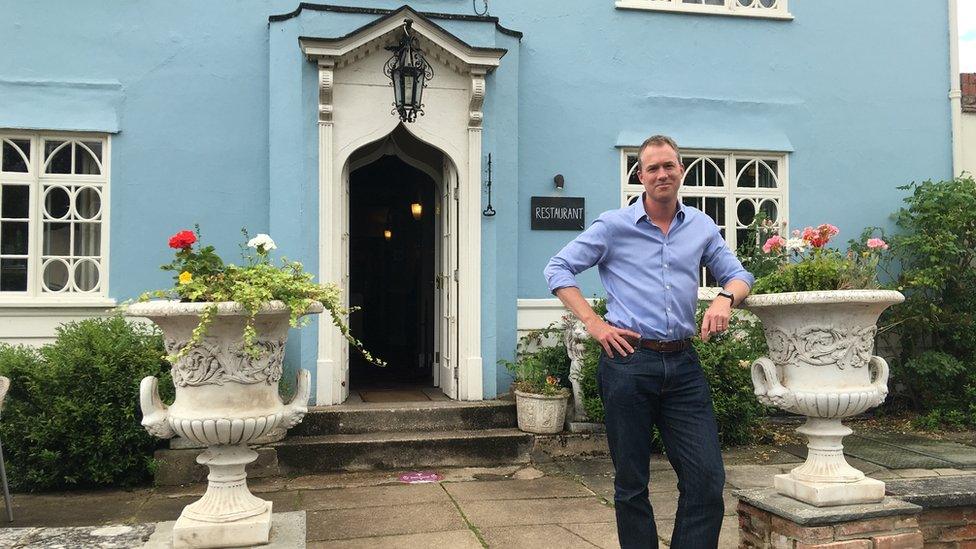
Owner Oliver Thain outside The Tickell Arms which showed yesterday's match
However, Oliver Thain, who runs eight pubs and restaurants in Cambridgeshire, said he was hopeful the tournament's feelgood factor would last.
He said the tournament had "made hardly any difference" to his largely food-based businesses and only two of his venues had screened games.
But he thinks bookings will pick up as consumers feel more confident and the country continues to unlock.
"Sport can really up the country's spirit, so though it's difficult to put a figure on, the Euros certainly can't do any harm."
- Attribution
- Published7 July 2021
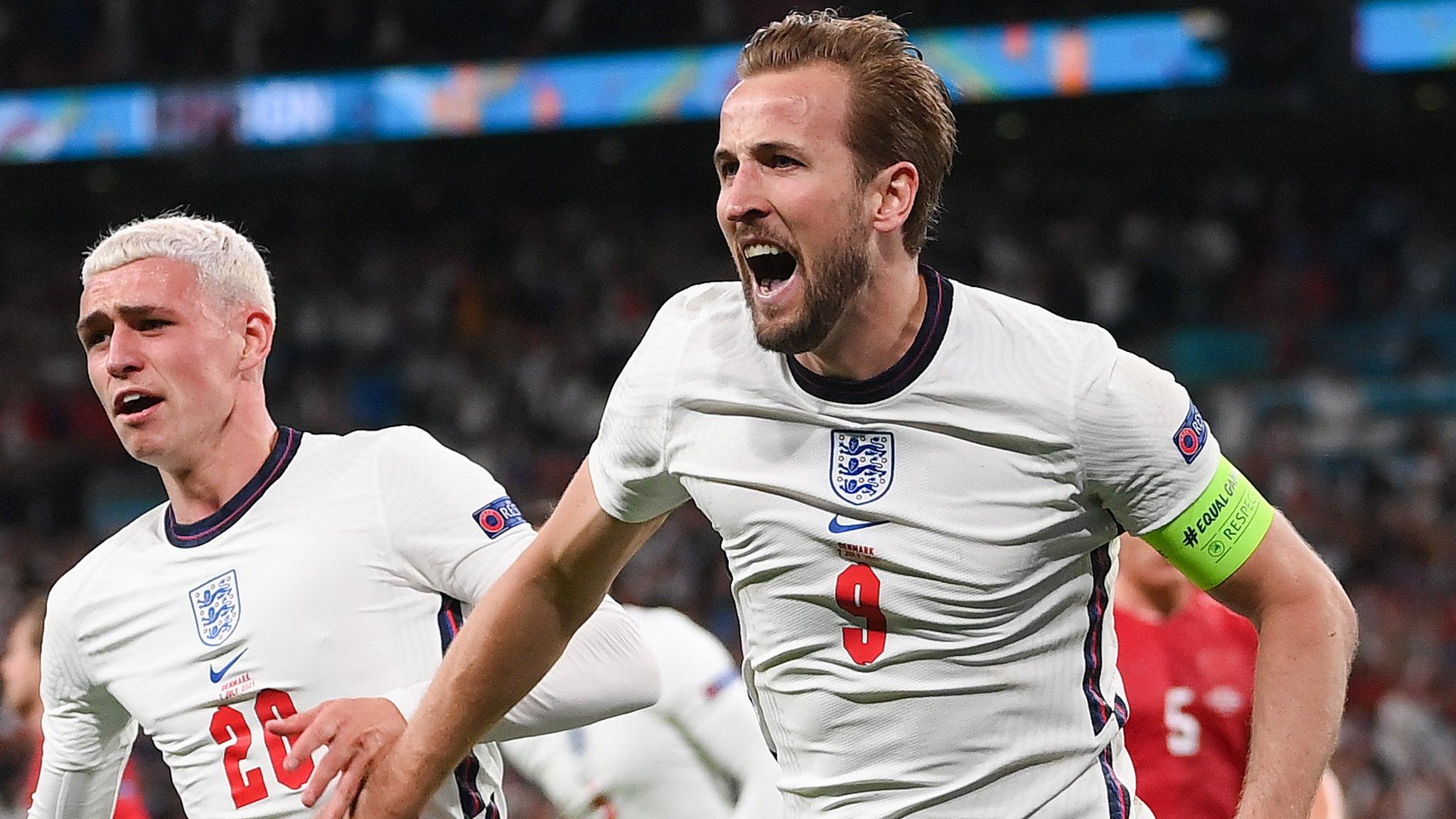
- Published6 July 2021
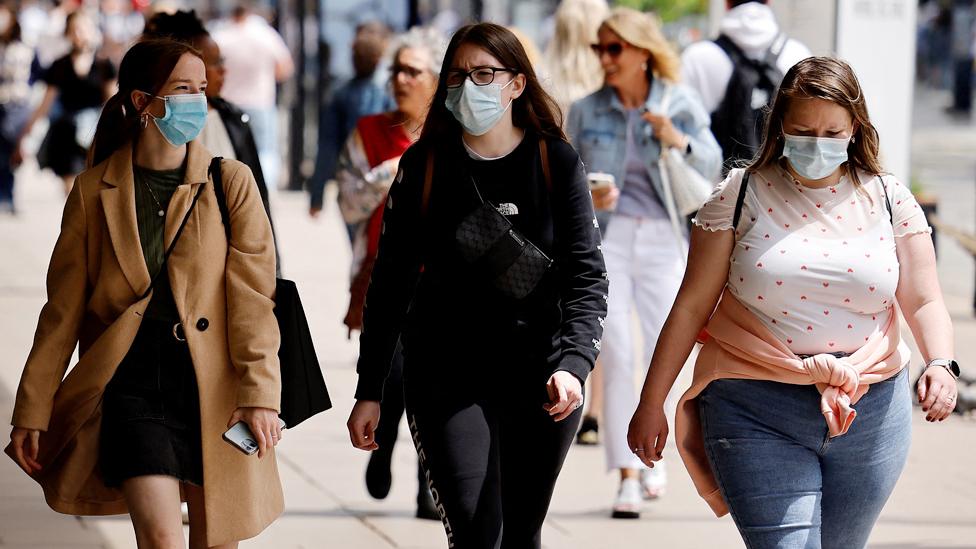
- Published7 July 2021
